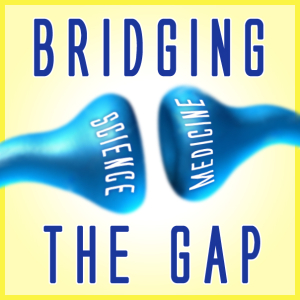The definition of “getting old” has changed dramatically in recent years. Due to the remarkable advances in medical technologies and interventions, the average life expectancy in the United States has been rising exponentially over the past 50 years. But while our bodies are lasting longer, our brains are still susceptible to the cognitive decline associated with aging. Memory loss and decreased visuospatial skills (such as those used for driving) are notable changes that take place in older adults. Although there is an entire industry dedicated to anti-aging skincare technologies, research into the factors that offset the cognitive effects of aging is still in its early stages.
There are a number of theories concerning the physiological processes underlying brain aging. One of these is the “dopamine hypothesis,” which suggests that cognitive decline is due to dopamine dysregulation in multiple brain regions, including input into the frontal cortex. Another theory is the frontal hypothesis, which attributes cognitive decline to a decrease in frontal lobe efficacy with age. Importantly, the most widely accepted theories describe a pattern of weakened frontal cortex activity with the aging brain.
The frontal cortex is responsible for top-down modulation of brain activity, meaning that it plays an important role in problem solving, memory and judgment. Evidence that points to a declining frontal cortex in the aging brain includes the finding that there is a notable decrease in frontal cortex brain volume that accelerates after 60 years of age. Volume decreases in the frontal cortex leading to age-related impairments in cognition and memory have been observed as part of the normal brain-aging process. In addition, studies showing decreases in cerebral blood flow and overall brain activity in the aging brain also point to a decline in frontal lobe function in aging.
Greater cognitive reserves, which have been suggested by some to be responsible for Albert Einstein’s intellectual achievements in his old age, enhance the brain’s resilience to damage due to aging. Cognitive reserve has both nature and nurture components, meaning that it is partly inherited and partly acquired through nutrients and activities that support cognitive ability. Factors that offset the effects of aging include education and mental exercise. Recently, there has been a number of games developed by researchers to help increase cognitive reserves. Although their beneficial outcomes so far appear limited, this is an area that is currently being heavily researched. Education, however, has been shown to be directly involved in increasing cognitive reserves.
Other factors include physical exercise and improved diet. Improved cardiovascular fitness, as well as overall fitness, have both been shown to increase cognitive reserves. Overeating and lack of exercise have been shown to greatly increase the risk for prevalent neurodegenerative diseases, including Alzheimer’s disease and Parkinson’s disease. Interestingly, epidemiological studies have shown that individuals with the lowest caloric intake had the lowest risk for Alzheimer’s and Parkinson’s diseases. This finding from 1995 has fueled more recent studies involving dietary restriction and neurodegeneration.
In 2000, one group subjected mice to an alternate day dietary restriction regime in which the mice were only allowed to eat every other day. This was an uncomfortable level of dietary restriction in these animals. The caloric intake of the animals was decreased by 30% on this new diet; however, the benefits were tremendous. The researchers found that their neurons experienced decreased damage from neurodegenerative disease in multiple brain areas.
Fasting is not yet a widely accepted dietary habit due to its relationship with eating disorders. It is important to note, however, the specifics of dietary restriction benefit. Dietary restriction provides just the right amount of stress to neurons, leading to increasing levels of heat-shock protein-70 and glucose-regulated protein-78, both of which are involved in protecting neurons from oxidative stress. Perhaps most importantly, fasting has been attributed to increasing the levels of the brain-derived neurotrophic factor (BDNF), which can protect neurons by inducing the expression of genes for proteins that defend against oxidative and other forms of stress.
Humans are living longer than ever, and research into preserving our brains through the aging process is still relatively new and incompletely understood. Recent findings about cognitive reserves provide potential methods for improving cognitive resilience. We might even see video games and fasting being incorporated into our physician’s lifestyle recommendations. Our brains are fundamental to who we are and how we interact with the people around us. Research into the aging brain can not only help prevent premature death from neurodegenerative disease, but can also provide hope for a better quality of life in old age.



